Bradley Byrne announces 2020 Senate bid to challenge Doug Jones
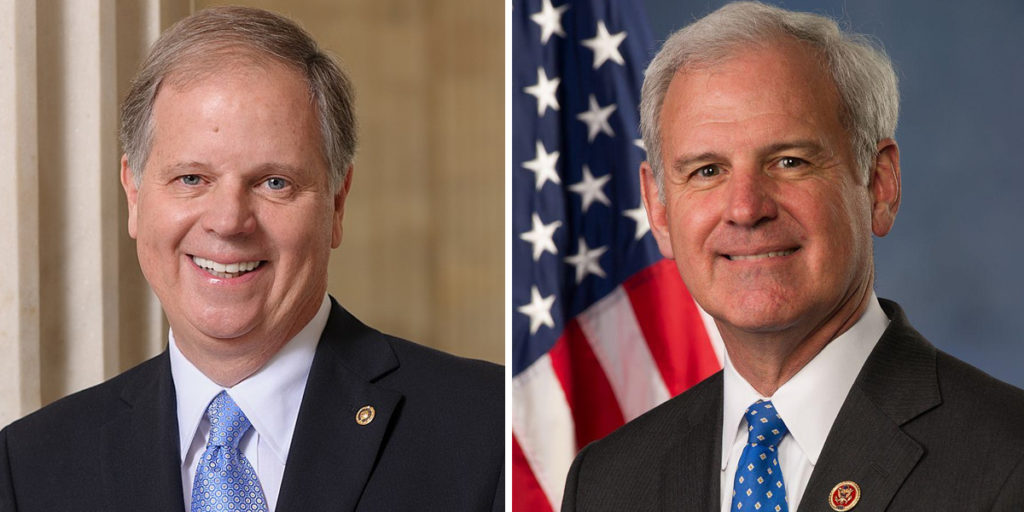
Alabama 1st District U.S. Rep. Bradley Byrne on Monday announced he will run for a Senate seat in 2020, giving Republicans their first option for taking back the seat that U.S. Sen. Doug Jones won in a special election in Dec. 2017. Byrne made the announcement Monday night, just down the street from where he grew up, at Wintzell’s in downtown Mobile, Ala. In announcing his candidacy, Byrne made clear his campaign will focus on his record as a fighter for Alabama’s values. “The fight for America’s future is too important to sit on the sidelines. I am running for the United States Senate to defend the values important to Alabama,” Byrne said. “We need a Senator who will fight with President Trump to defend the Constitution, build the wall, stand up for the unborn, push for lower taxes, make health care more affordable, and protect the Second Amendment. I will fight every day to bring Alabama’s conservative values to Washington.” Following Byrne’s announcement, Jones weighed-in on Byrne’s candidacy. “Given the results of his losing bid for governor in 2010, in which he did not even win the republican nomination, it’s hard to see why they would nominate a career politician like Bradley Byrne now,” said Jones. “He has been part of the problem in Washington for years.” Byrne has represented Alabama’s 1st District since 2014. Battle of the war chests When it comes to cash-on-hand, Byrne is not too far behind Jones. According to Federal Election Commission (FEC) filings, Byrne has $1,090,498.98 is his congressional campaign fund, which he is able to transfer to his senate campaign. Meanwhile, Jones has a balance of $2,131,165.71 cash-on-hand.
AG Steve Marshall asks FEC to investigate Senate race tactics
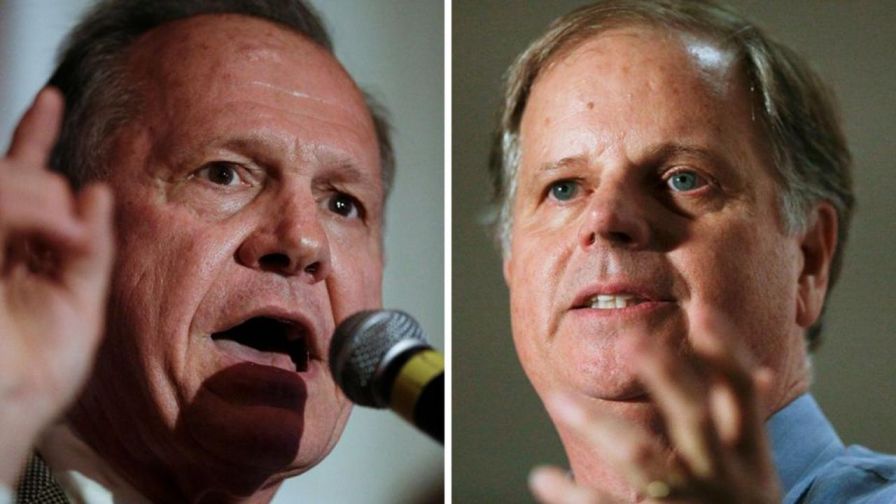
The Alabama attorney general is not investigating reports of online fakery in the 2017 Alabama Senate race after determining it is an issue for federal election regulators. A spokesman for Attorney General Steve Marshall said Monday that Marshall’s office has asked the Federal Election Commission to “investigate the matter to determine if any federal laws were violated.” The Washington Post and New York Times reported incidents of misleading online tactics by a social media researcher and others during Democratic Sen. Doug Jones’ 2017 campaign against Republican Roy Moore. Operators posed as conservative voters on Facebook. Marshall previously said he was evaluating the reports. Spokesman Mike Lewis wrote in an email that they evaluated reports of possible deception and “determined the matter to be under the exclusive jurisdiction” of the FEC. Republished with permission from the Associated Press.
Q3 reports reveal Alabama’s federal candidates raking-in money
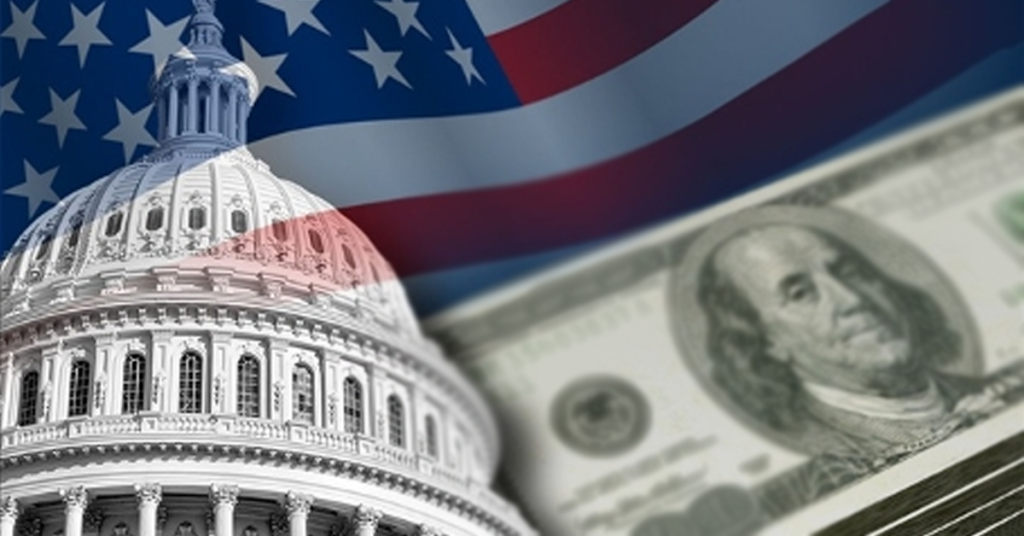
Election Day is only three weeks away, and candidates across the state are making their final efforts in hopes of victory on Nov. 6. Part of those efforts is the ever-important fundraising and Monday marked the midnight deadline for U.S. House candidates to file their Q3 quarterly campaign finance reports to the Federal Election Commission (FEC). The reports detail how much much the candidates raised, how the spent said money, and how much cash they have left on hand between July 1 and Sept. 30 of this year. Across the board, filings reveal Republican incumbents are leading their Democratic challengers in the money race in all six of the state’s challenged congressional districts. Here’s a topline look at the Q3 filings: 1st Congressional District Bradley Byrne (Republican, incumbent) Total receipts: $1,235,766.41 Total disbursements: $645,973.06 Total cash on hand: $1,036,111.68 Robert Kennedy (Democrat, challenger): Total receipts: $17,426.64 Total disbursements: $12,176.64 Total cash on hand: $44,526.77 2nd Congressional District Martha Roby (Republican, incumbent): Total receipts: $300,443.30 Total disbursements: $571,207.30 Total cash on hand: $459,909.75 Tabitha Isner (Democrat, challenger): Total receipts: $167,455.90 Total disbursements: $117,346.47 Total cash on hand: $137,544.01 3rd Congressional District Mike Rogers (Republican, incumbent): Total receipts: $224,232.84 Total disbursements: $148,387.09 Total cash on hand: $1,100,276.29 Mallory Hagan (Democrat, challenger): Total receipts: N/A (not yet online) Total disbursements: N/A (not yet online) Total cash on hand: N/A (not yet online) 4th Congressional District Robert Aderholt (Republican, incumbent): Total receipts: N/A (not yet online) Total disbursements: N/A (not yet online) Total cash on hand: N/A (not yet online) Lee Auman (Democrat, challenger): Total receipts: $34,614.45 Total disbursements:$33,362.04 Total cash on hand: $10,238.47 5th Congressional District Mo Brooks (Republican, incumbent): Total receipts: $181,615.94 Total disbursements: $15,166.70 Total cash on hand: $767,904.50 Peter Joffrion (Democrat, challenger): Total receipts: N/A (not yet online) Total disbursements: N/A (not yet online) Total cash on hand: N/A (not yet online) 6th Congressional District Gary Palmer (Republican, incumbent): Total receipts: $229,517.37 Total disbursements:$232,486.22 Total cash on hand: $978,007.43 Danner Kline (Democrat, challenger): Total receipts: $76,664.17 Total disbursements: $44,450.29 Total cash on hand: $94,762.11 7th Congressional District Terri Sewell (Democrat, incumbent): Total receipts: $261,901.50 Total disbursements:$195,812.89 Total cash on hand: $1,622,089.61
Applauding the Ethics Commission’s decision on child care reimbursements

I come at the news of the Alabama Ethics Commission granting candidates the right use campaign funds for child care expenses, as a) a woman who has been an underdog, under-funded candidate (though at the time I did not have children) b) as a mother of two (with another on the way), and c) as someone who’s worked for candidates that have paid out of pocket for child care during campaigns and/or have brought their children to campaign events because of the high costs of care. On all fronts: I believe the decision is a good one, if not long overdue. Reimbursing for child care is in-line with how money is spent in campaigns, so long as you can pay for the other essential costs of campaigning, such as gas, food, etc. then there’s no reason to exclude child care. Far too often there are those who want to run for office, but lack the financial means to do so. They are essentially priced out successful campaigns. It doesn’t pay a lot to be an elected official, and it seems to cost exponentially more to run a successful campaign with every passing campaign cycle. Let’s be honest it costs a lot of money to campaign, especially when special interests, good or bad, are invested in candidates trying to keep or change the status quo. This opinion allows individuals, who otherwise lack the financial means to pay for child care out of pocket while they run, the opportunity to be in the arena and fight. For that I believe this decision is a great step forward. Campaigning can be exhausting (and it should be if done correctly). There are long hours and endless stops. These stops aren’t always appropriate for children and while I love to see kids involved in the political process, it should be the value of the experience that compels a candidate to bring them not the costs of child care. That seems to be a fact that was lost on those who opposed to the reimbursements, like Alabama Ethics Commissioner Charlie Price. Running for office shouldn’t come with a parenting penalty. Yes, one must take into account all personal factors when committing to a campaign and the potential for public service, and that should include the personal and financial tolls it will take on a family, but no family should be excluded or put out because of reasonable and justifiable costs associated with child care. There’s enough barriers already and we need good people to run and hold office — which absolutely includes parents. My hope is that as we move forward candidates don’t take advantage of this and keep the strict guidelines of campaign interest in mind when they seek reimbursements. There’s always going to be bad seeds, and there’s always going to be those who abuse the system, live off their campaign funds and have careless spending habits, but let’s face it: child care is an essential component for those parents who wants to get out there and make their voices heard. So simply put: Kudos to the FEC and Alabama Ethics Commission for making the right decision for families.
Following FEC ruling, Alabama candidate permitted to use campaign funds for child care expenses

The Federal Election Commission (FEC) in May ruled unanimously that federal candidates can use campaign funds to pay for child care costs that result from time spent running for office. The FEC justified their decision by saying the candidate’s child care needs were a direct result of her running for office and essential to her continuing to do so. Thus, the spending would not be considered a violation of rules that prohibit personal spending. Since the FEC only regulates federal election campaign finance, an Alabama candidate for the State House District 45, Democrat Jennifer Gray, requested a formal opinion from the Alabama Ethics Commission as to whether or not she could do the same. In her request Gray explained she would not have needed the child care had she need been a candidate. And without child care, she cannot participate in campaign activities like attending Chamber of Commerce meeting, meeting with constituents, canvassing or phone banking. Unlike the FEC, the Ethics Commission decision was not a unanimous one. In a 3-1 ruling, they decided Gray may use her campaign funds as such expenses would not exist “irrespective of the candidate’s campaign officeholder duties.” “[Gray] may use campaign funds to pay for the childcare expenses described in the request to the extent such expenses are incurred as a direct result of campaign activity and are tied to specific campaign events,” said Jerry L. Fielding, Chair of the Alabama Ethics Commission, in the decision. But the Commission didn’t make a blanket ruling for all candidates. They clearly concluded their ruling stating, “The conclusion reached herein applies only to these facts and may not be applied beyond these facts.” They also ruled that Gray must disclose her child care expenses so that donors know exactly where the funds are going. “The payments must be reasonable and customary for the services rendered, and the campaign must properly document the expenditures,” the decision read.
Doug Jones accepted Rosie O’Donnell campaign donations beyond federal legal limit
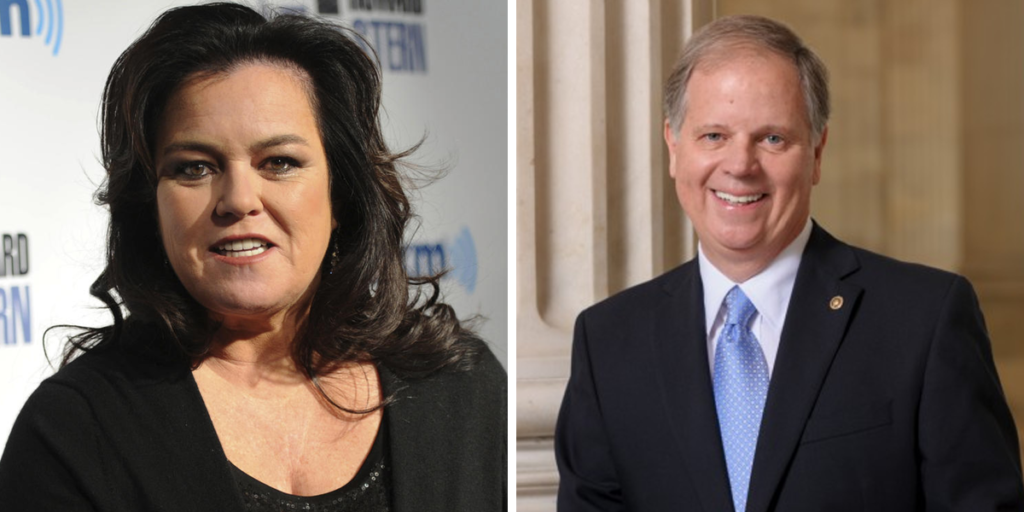
Newly elected Alabama Senator Doug Jones has been accused of accepting donations beyond the federal legal limit from nationally known comedian, and Donald Trump adversary, Rosie O’Donnell. A report by the New York Post published Saturday evening, details the donations O’Donnell madefor at least five Democratic candidates including Jones. According to the report, she donated $4,700 to the Doug Jones campaign using an online liberal fundraising platform, ActBlue. Currently, the Federal Election Commission (FEC) limits the total that any one person can give to an individual candidate to $2,700 per election. The limit applies separately to primaries, runoffs and general elections. O’Donnell said she was unaware of the law and assumed that ActBlue would automatically limit her donations accordingly, “If 2700 is the cut off — [candidates] should refund the money,” she wrote. “I don’t look to see who I can donate most to … I just donate assuming they do not accept what is over the limit.” According to campaign fillings, O’Donnell donated more than $90,000 to 50 different federal candidates and committees during the 2017-2018 election cycle, and exceeded the legal limit on at least five campaigns. Both donors, and the candidates they donate to, are legally liable for any contributions that go over the legal limit. However, it’s unlikely O’Donnell or her benefactors will be penalized for breaking FEC rules. Contributions that break the limit can be refunded to the donor or counted toward a different election. Married donors may also attribute the given money to a spouse. “Donors are rarely fined for excess contributions and then only if they are hiding the donations from the recipients,” prominent D.C. campaign finance lawyer Jan Witold Baran told the Post. “Campaigns generally are not penalized for isolated contributions over a limit. However, multiple excessive donations may lead to an investigation … Fines could result in such cases.” Jones has yet to comment on the accusations.
DNC lied about how much it spent to defeat Roy Moore
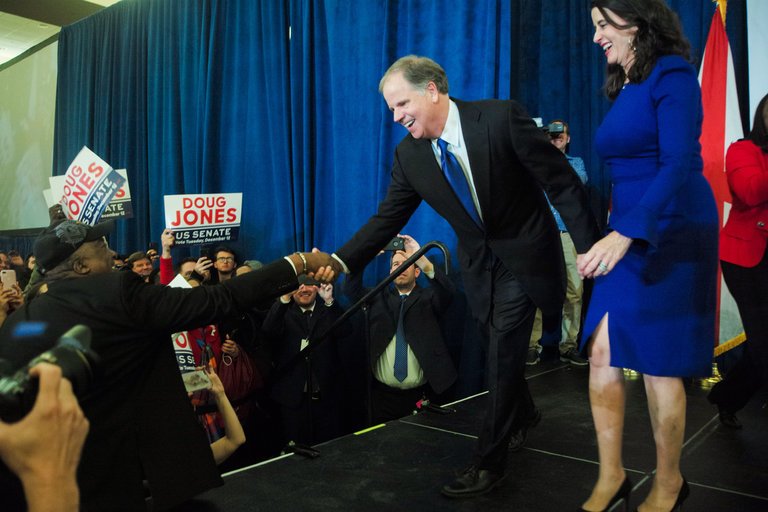
Following Democrat Doug Jones‘ victory in December, the Democratic National Committee (DNC) claimed they aided his campaign tremendously; declaring they spent $1 million dollars of their own money towards defeating Republican Roy Moore. Last year’s heated senate race between now Senator Jones and his opponent, former Alabama Chief Justice, Moore had everyone in Alabama on edge. The race garnered national media attention and even the attention, and endorsement, of President Donald Trump. What a great opportunity for the DNC to show it’s power and wealth. Well, maybe not. Although the committee did contribute aides, organized voter-outreach plans, and campaigned via text, calls, and volunteers, the committee only spent $250,000 of their own money towards the campaign. The cash was used to fund more than two dozen staffers in Alabama who organized outreach to African-American voters. The rest of the $1 million that the DNC claimed actually came from voters and donations that the DNC solicited for Jones campaign. “For the first time in its history, the DNC used its email list for split fundraising to directly raise money for and invest in campaigns across the country in 2017,” Michael Tyler, DNC spokesman told McClatchy. “While the RNC cut blank checks for an accused child molester, we’re proud that tens of thousands of Americans contributed $5 and $10 at a time to fund the Doug Jones campaign’s organizing efforts.” The DNC has filed reports with the Federal Election Commission showing $87,000 and claims they will be able to show another $163,000 when records of their spending are received. The remaining $679,000 they raised through e-mail fundraising will not have to be reported with the FEC since the money never actually passed through the committee. Jones is already working on paying the committee back, at the end of December he sent an e-mail to former Vice-President Joe Biden‘s PAC, American Possibilities asking for donations for democratic candidates in 2018.
Democrat’s Senate Majority PAC heavily funded Doug Jones’ campaign

Highway 31, a mysterious super PAC that backed Democratic candidate Doug Jones and was the largest independent spender in the Alabama Senate race, spent millions attacking Roy Moore throughout the campaign season. But unlike other campaign spenders, the particular group refused to disclose who the donors were behind its multi-million ad buy until after Election Day. On Wednesday, it was revealed the PAC was heavily funded by the Democratic Senate Majority PAC, a group solely dedicated to building a Democratic majority in the U.S. Senate. Chris Hayden, spokesman for the Senate Majority PAC, told the Associated Press on Tuesday the group “predominantly funded” the Highway 31 PAC, which sent out advertising and mailings to help defeat Republican Moore. The PAC spent roughly $6 million in Alabama, according to Hayden.
Super PAC attacking Roy Moore won’t disclose donors, FEC asked to investigate
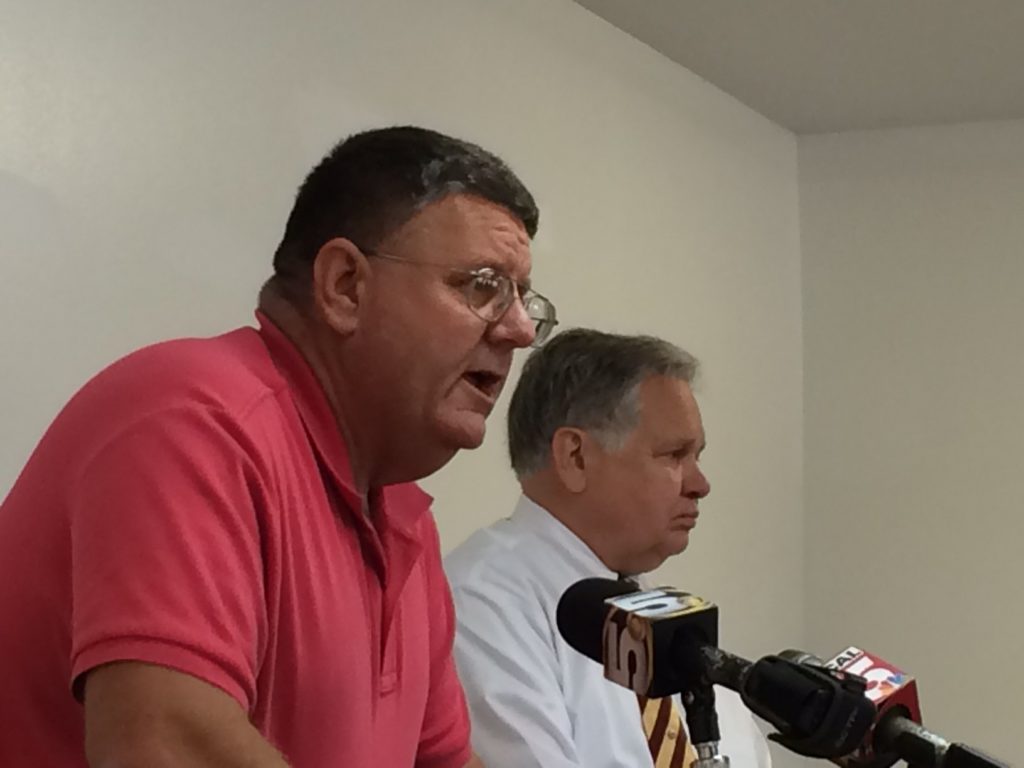
The Federal Election Commission (FEC) has been asked to investigate a super PAC that is spending large amounts against Republican senate candidate Roy Moore, but is not showing any donations. Highway 31, a super PAC backing Democratic candidate Doug Jones and the largest independent spender in the Alabama Senate race, has spent millions attacking Moore. But unlike other campaign spenders, this particular group refuses to disclose who the donors are behind its multi-million ad buy before Election Day. On Monday, Baldwin County businessman Kevin Spriggs asked the FEC to investigate the mysterious super PAC. “Mr. Commissioner – As a resident of Alabama, I have noticed a Super PAC titled ‘Highway 31’ running numerous campaign commercials in the Mobile. Ala. television market, including an ad during the SEC Championship football game,” Spriggs said in his request to FEC Chairman Mathew Peterson. “A search of the FEC website shows hundreds of thousands of dollars of expenses without any donors. I also checked the irs.gov website for forms 8871 and 8872 required to be filed by 527 organizations. No filings are shown for donors and expenses. If donations and expenses exceed $50,000, the IRS requires an electronic filing of form 8872.” Spriggs continued, “I am asking you to please investigate this matter as it appears that this Highway 31 organization is evading campaign finance law by not disclosing their donors.” Lachlan Markay of the Daily Beast explained the situation further : Super PACs are required to disclose their donors, but the group Highway 31 has structured its spending in a way that campaign-finance experts say is almost unprecedented. While legal, it will have the effect of obscuring the group’s benefactors, who will have financed a series of ads over the last two months of the campaign propping up Jones and hammering his Republican opponent, former State Supreme Court Justice Roy Moore. Highway 31 has reported nearly $2 million worth of ads in the race, according to filings with the Federal Election Commission… The group filed what was expected to be its first itemized disclosure of donors and expenditures Thursday. But in the filing, Highway 31 said it had received and spent no money whatsoever. Spriggs says he has not received any reply from the FEC, but he hopes for action before the Dec. 12 special election when Moore faces off against Jones Under FEC rules, final contributor and expense disclosure reports are not required to be filed until Jan. 21, 2018.
Republican Senate Cmte drops out of fundraising agreement with Roy Moore
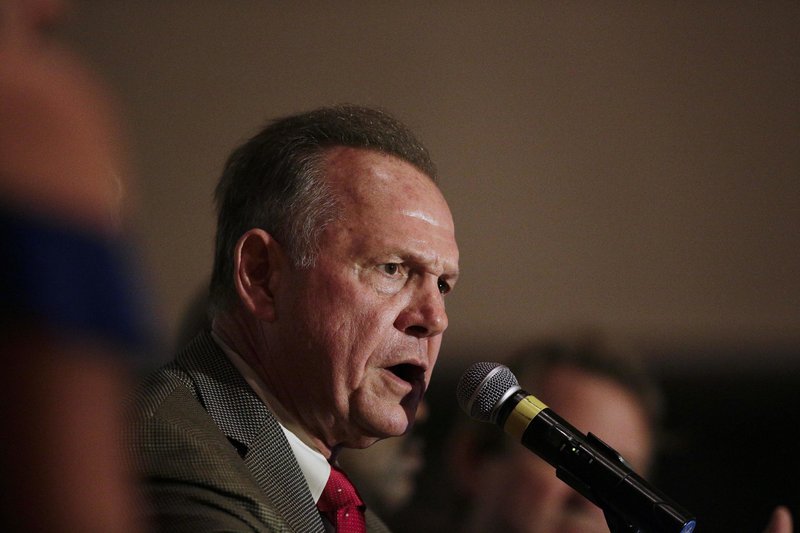
Less than 24 hours after bombshell allegations of sexual assault surfaced against Alabama U.S. Senate candidate Roy Moore, the Republican Party’s campaign wing on Friday severed its fundraising agreement with the former state Chief Justice. Paperwork was filed with the Federal Election Commission (FEC) on Friday showing the National Republican Senatorial Committee (NRSC) has been removed from a joint fundraising committee that also includes Moore’s campaign, the Alabama Republican Party and the Republican National Committee. “The allegations against Alabama Senate candidate Roy Moore are deeply troubling,” Colorado-Republican Sen. Cory Gardner, chairman of the NRSC said in a prepared statement. “If these allegations are found to be true, Roy Moore must drop out of the Alabama special Senate election.” He explained the NRSC’s focus “is always on keeping a strong Republican majority in the Senate.” The NRSC did not respond to requests from Alabama Today for comment. Moore has been under fire since The Washington Post published an explosive report Thursday afternoon with the accounts of four women who claim he sexually pursued them when he was in his 30s and they were in their teens. The news has caused rapid fallout from dozens of Senate Republicans who have called on Moore to withdraw his name from next month’s special election if the allegations are true. Moore faces the Democratic nominee Doug Jones in the special election on Dec. 12.
RNC: Spending on legal bills for Donald Trump Jr. nears $200K
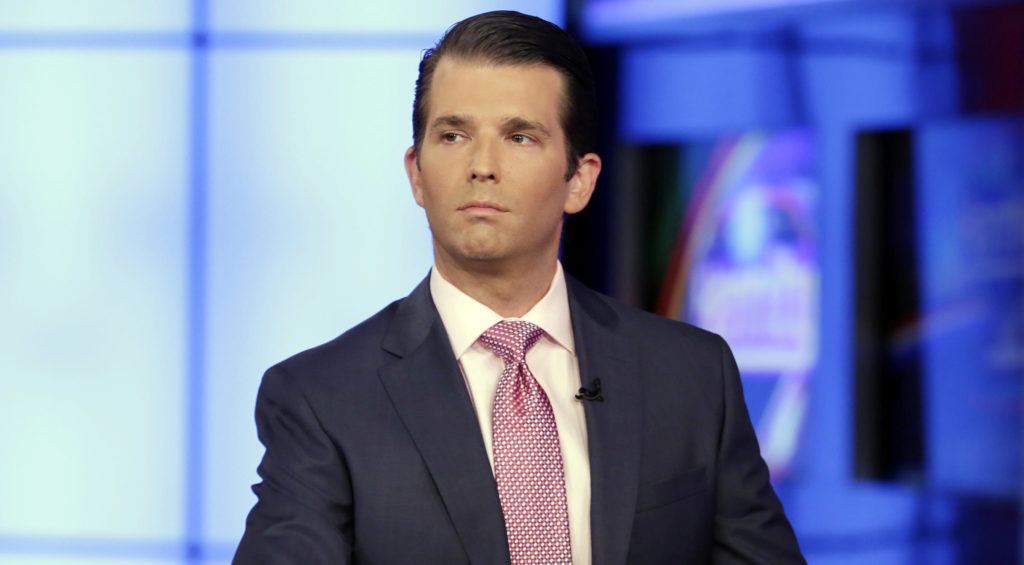
The Republican National Committee has paid nearly $200,000 in legal fees for President Donald Trump‘s eldest son in connection with the Russia investigation, a committee official said Tuesday. More than $166,000 was paid to Donald Trump Jr.’s attorney, Alan Futerfas. Another $30,000 went to the law firm of Williams & Jenson, which helped prepare him for testimony. The RNC official insisted on anonymity to discuss financial information not yet made public. The RNC is expected to release its August spending totals Wednesday, but that report will not include the spending on Trump Jr.’s legal fees. Those figures will appear on the committee’s September report, the official said. Trump Jr.’s attorneys’ fees were paid for out of the “legal proceedings account,” a pre-existing account that high-dollar donors to the party knowingly contribute to. The payments were not taken from the party’s general fund and will not reduce party spending on political work, the official said. Trump Jr. recently testified in private to Senate investigators that he did not collude with Russia to damage Hillary Clinton‘s campaign against his father. Congressional investigators and Justice Department special counsel Robert Mueller want to learn more about a June 2016 meeting Trump Jr. had at Trump Tower in New York with a Russian lawyer as part of their separate but broader inquiries into links between the Trump campaign and Russia. U.S. intelligence agencies have said Russia tried to influence the election to help Trump win. Trump’s son-in-law, Jared Kushner, now a senior adviser to the president, also attended the June 2016 meeting. As of mid-July, Trump’s presidential campaign had spent almost $1 million on legal fees this year, according to a campaign finance report filed with the Federal Election Commission. That included a $50,000 charge for Futerfas’ law firm. The payment was made shortly before news reports about the younger Trump’s Russia meeting. Republished with permission from the Associated Press.
Texas Donald Trump supporter tapped for Federal Election Commission
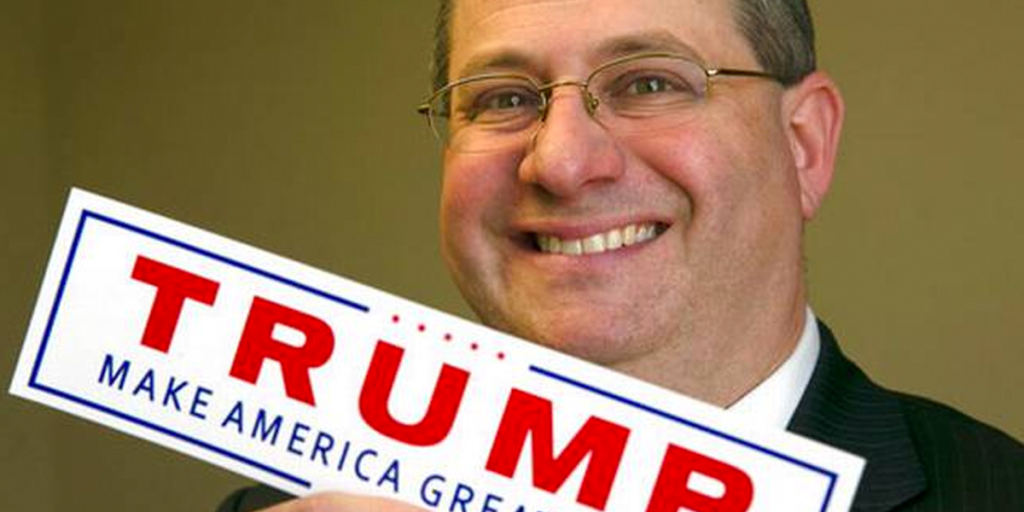
President Donald Trump has selected a Texas attorney – and supporter – to join the beleaguered Federal Election Commission. Trump appointed James “Trey” Trainor III, a well-known election-law specialist based in Austin, to the panel that monitors and polices federal campaign fundraising and spending. The position requires Senate confirmation. Trainor would serve a term that expires in April 2021, according to a White House announcement Tuesday night. The FEC is typically made up of six commissioners, and by law no more than three can be from the same political party. At least four votes are required to take action on any enforcement matter, explaining why the politically divided FEC has deadlocked repeatedly in recent years. Trainor is pictured in a January Austin American-Statesman story grinning broadly and holding pro-Trump signs. Although Trainor initially backed Texas Sen. Ted Cruz for president, he told the newspaper that under Trump, “I think America is going to be great again.” Trainor also helped Trump at the Republican National Convention, he told the newspaper, after receiving a call from Don McGahn, Trump’s campaign attorney. McGahn is now White House counsel; he previously served as an FEC commissioner himself. A short biography released by the White House cites Trainor’s experience as general counsel to the Texas Secretary of State, its Elections Assistance Commission and various other government legal roles. The appointment comes shortly after Trump appointed one of the FEC’s current Republican commissioners, Matthew Petersen, to a federal judgeship. He also will need Senate confirmation. The moves – one in, one out – would mean that the FEC would operate with just five commissioners for now. And one of them, Republican Lee Goodman, told the Center for Public Integrity that he wants to quit by the end of this year. That could leave the panel with the bare minimum number of commissioners needed to take any action, even with the 2018 midterm elections fast approaching. A Center for Public Integrity report notes that Trump could theoretically appoint all six commissioners as long as he adheres to the three-members-per-party rule, because everyone currently serving is in an expired term. Republished with permission from the Associated Press.


